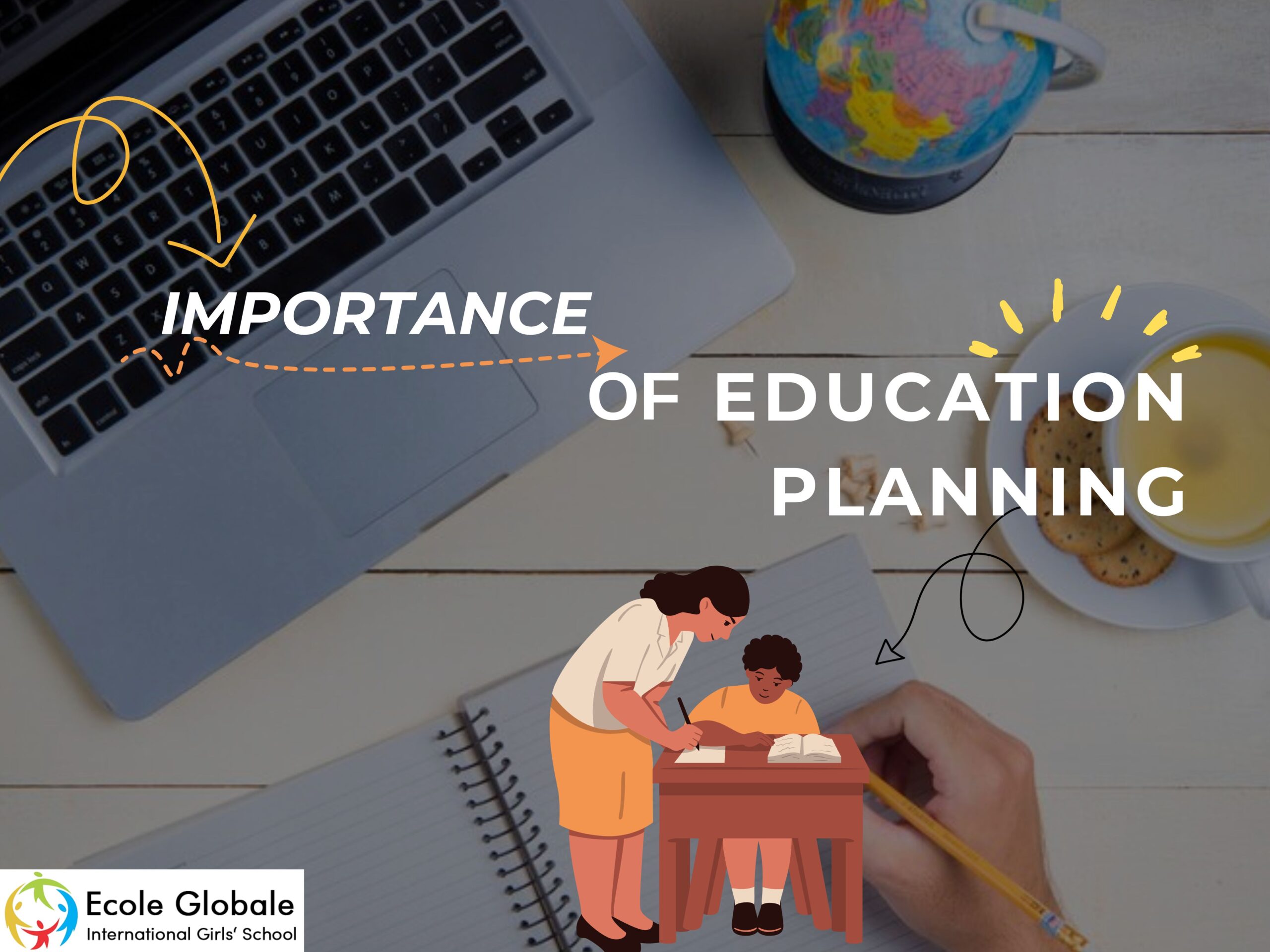Have you ever asked yourself why education planning really matters? Often, it feels like we’re just going through the motions.
This can lead to late submissions, delayed vacations, and kids lacking the right tools for learning. But it doesn’t have to be this way. Knowing what education planning is and why it’s important can change everything.
Think about this: children spend a lot of time in school—up to eight hours a day, five days a week, for 13 years. That’s a big chunk of their lives. A good plan helps them develop memory, attention, and problem-solving skills. That’s why every parent should prioritize quality education.
Definition: Education planning is a written plan made by an educational consultant or counselor. It outlines the best ways to achieve a student’s academic and career goals. It also identifies programs after school, factors affecting decisions, and financial strategies.
The Importance of Education Planning

As a parent, you want the best for your child. A good education can open doors and help them achieve their goals. Many things help a child develop, but planning their education is key to lifelong learning and success.
The Benefits of Education Planning

Starting Early
- Early Engagement: Planning early means children get the most out of school. They get the support they need to make informed choices about their future.
- Exploring Interests: Kids need time to explore what they like. This helps them build the knowledge they need for success. Encourage curiosity and provide chances for discovery.
- Parental Support: You play a big role in keeping your kids motivated. Help them set and achieve goals and stay involved in their education.
Financial Preparation
- Early Savings: Planning includes figuring out the money needed for your child’s education. Start saving early to meet these needs.
- Avoiding Financial Strain: Planning allows you to save steadily. This ensures you can afford the education you want for your child.
Common Issues in Education Planning
- Saving Too Little, Too Late: Start saving early to give funds more time to grow.
- Missing Tax Benefits: Investing in schemes like Public Provident Fund (PPF) or Sukanya Samriddhi Yojana (SSY) can provide guaranteed returns and tax benefits.
Educational Planning: An Overview

Definitions of Educational Planning
- Oxford English Dictionary: “Planning is to design some action to be done beforehand.”
- Hugman and Schwartz: “Planning selects among alternatives, explores routes before travel begins, and identifies possible outcomes before the executive and his organization commit to any.”
- Philips: “Planning is regarded as the process of setting out in advance a pattern of action to bring about overall national policies by the closest possible articulation of means and ends.”
Educational planning looks at many options and picks the best one. It helps design actions to reach educational goals using available resources.
In places known for academic excellence, like Dehradun Schools, proper educational planning ensures that students get the most out of the learning environment.
The Significance of Educational Planning

- Success of Educational Programs: Proper planning helps educational programs succeed.
- Resource Utilization: It makes the best use of available resources, saving time, effort, and money.
- Problem-Solving: It offers a good way to solve educational problems.
- Avoiding Wastage: Proper planning reduces waste and improves efficiency.
- Preserving Future Values: Education planning ensures education maintains and develops future values, skills, and culture.
Types of Educational Planning

- Administrative Planning: This involves dividing responsibilities and powers at different educational levels. It ensures good management and coordination of educational programs.
- Academic or Curricular Planning: This focuses on smooth academic processes, setting educational goals, creating curricula, and picking teaching methods.
- Co-Curricular Planning: This covers overall student development, including welfare services, sports, social activities, and cultural programs.
- Instructional Planning: This looks at classroom situations, setting instructional goals, and choosing learning activities and evaluation methods.
- Institutional Planning: This includes all the types above and focuses on the needs of individual schools. It covers administration, curriculum, co-curricular activities, school-community relations, discipline, and development programs.
Conclusion
Educational planning is crucial for a student’s academic and personal growth. It offers a structured way to reach educational goals, makes good use of resources, and builds motivation and confidence.
As a parent, your role is key. Start early and stay involved throughout your child’s education journey. This will make a world of difference in their development and success.
Frequently Asked Question
Q1. What is education planning?
ANSWER. It’s a plan created to outline the best methods to achieve a student’s academic and career goals.
Q2. Why is education planning important?
ANSWER. It helps set a clear path for academic success, personal growth, and financial stability.
Q3. When should I start planning my child’s education?
ANSWER. It’s best to start as early as possible to ensure ample preparation time and resources.
Q4. How does education planning help financially?
ANSWER. It allows you to start saving early and take advantage of tax benefits, reducing financial strain.
Q5. How can education planning reduce stress for students?
ANSWER. It provides a clear roadmap, reducing uncertainty and helping students manage their time effectively.









